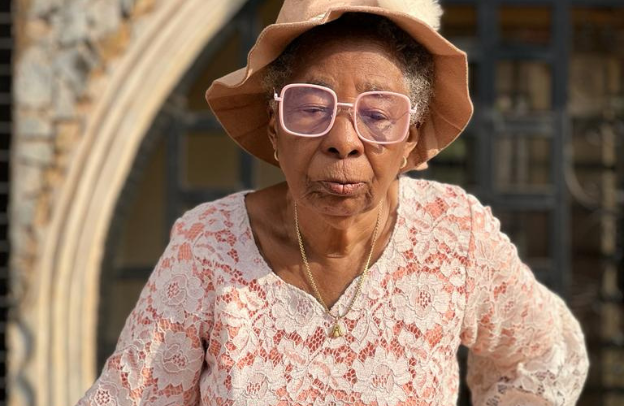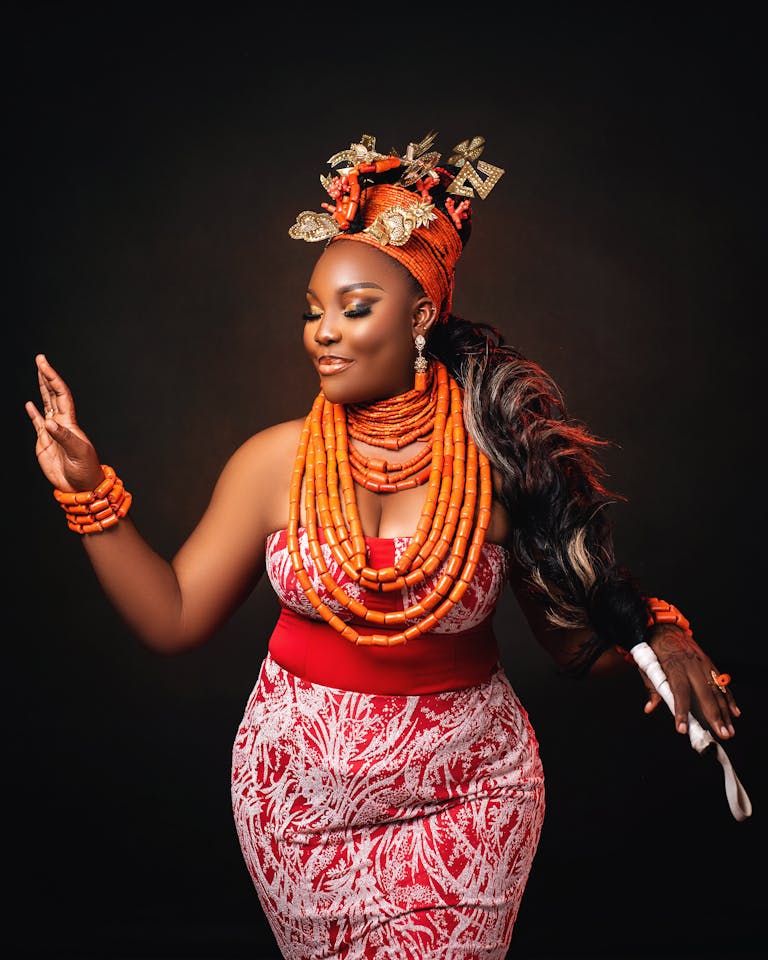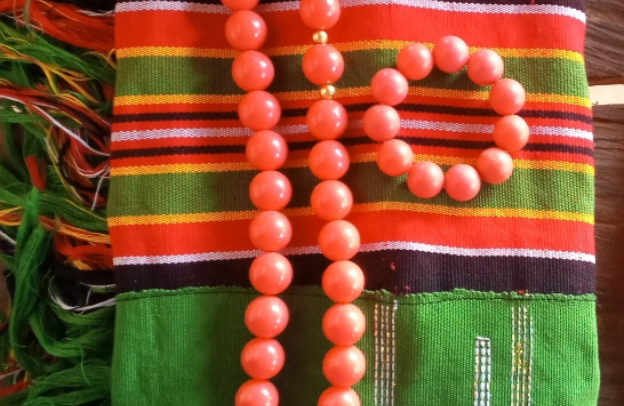The Role Of Women In Esan Society: Economic and Custodians of Tradition

Want to learn about the role of women in Esan society and how they remain economic and custodians of tradition? Then keep reading. But first, we want to cordially invite you to the coronation ceremony of Mrs. Azeke Adanemen as the (Odion Ikhuo) women leader of Udomi in Onewa of Uromi, Edo State, Nigeria. The event is this Saturday, 16th March, at 10 am in the Azeke compound, Udomi in Onewa Uromi.
Want to learn more about storytelling? Start by downloading the first chapter of The Storytelling Mastery.
You would probably have heard that in the Esan family structure, women are excluded from village and communal authority. But this is not always the case and whatever your understanding, this article is about the role of women in Esan society and why we should keep celebrating them.
Recently, we published another article that talked about the gerontocratic structure of Esan society. You might need to check out that article to learn more: The Gerontocratic Structure Of Esan Society: Power In The Hands Of Oldest Members Of The Village
Of Mrs. Azeke Adanemen who is to be coronated as (Odion Ikhuo) or women leader of Udomi in Onewa, we want to say a big congratulations, and may your leadership bring great blessing to the people of Udomi of Onewa.
Let’s no one forget that among the many facets that define Esan society, one of the most important is the role women play in shaping its fabric. Unlike conventional narratives that often overlook their contributions, Esan women have always been the pillars of strength, wielding profound influence within the familial and economic structure of Esan society.
See also – Agba, The Esan God of War – 1: The Origin Of Uromi And Esanland
The truth be told, no human society can function without the feminine energies. This is not only to say that women also belong but that they effectively deserve recognition for their contribution. This is why Mrs. Azeke Adanemen is being celebrated today as the women leader of Udomi in Onewa, Uromi. Now, let’s break it down.
Esan Women as the Domestic and Economic Guardians
Central to Esan society are domestic and economic responsibilities, a domain where women reign supreme. As their husbands venture into wood, hunting, and farming, Esan women (those who didn’t accompany them) will remain the stewards of the household, orchestrating its daily routine with grace and determination.
This, like many Esan women, is what Mrs. Azeke did for her family and why she is been celebrated today with her children and grandchildren around her. Being coronated as the eldest woman in a village is not a gift but an honor and responsibility. Mostly a call to celebration for her journey thus far.
In the Guardian, recently, an article was quite sticking with the following: “Women are often overlooked in key economic development, yet they make vital contributions to the global economy. How can women be rewarded and recognized in big business? We ask for your contributions.” You can read more “Women and business: the heart of economic value creation”.
Now back to Esan. While the men toil in the fields, it is the women who command the hearth, transforming humble ingredients into nourishing meals that sustain both body and soul in the family. It needs to be underlined that Esan people eat well, food that is rich in vitamins, never devoid of vegetables, and unforgettable bushmeat. Do you remember the bushmeat?
Non-Esan women who want to marry Esan men are often advised that they must master their kitchen if they want to stay, and I am not joking.
Of course, the contributions of Esan women extend far beyond the confines of the kitchen. With skillful hands and unwavering resolve, Esan women engage in a myriad of economic activities that underpin the community’s livelihood.
From milling palm oil to cracking palm kernels and weaving complex patterns Esan “Egbulu”, these industrious matriarchs are the unsung heroes of Esan commerce. Uromi, Ekpoma, Irua, you name it. As they skillfully ply their trade, their children stand witness, absorbing the essence of their craft, thus ensuring the continuity of tradition across generations.
I speak of the truth that I have firsthand knowledge of. I have seen my mother in Idumhughulu village and my grandmother in Idumuesogba village, both within Amedokhian, Uromi. This is the long heritage of passing down tradition among the Esan people.
Esan women are Custodians of Tradition
Beyond their instrumental role in the economic landscape, Esan women serve as the custodians of tradition, preserving age-old customs and cultural practices with dedication.
Within the confines of the home, that large and interconnected neighborhoods, or so it was, stories are woven into the fabric of daily life. With deep passion, hard-earned experiences are passed down from mother to daughter like precious gifts.
Through song and dance, ritual and ceremony, Esan women breathe life into Esan tradition, infusing it with the wisdom and resilience of generations past. If you have lived with an Esan grandmother, you will know what I mean.
They are treasures of a lifetime and truly must be celebrated. Celebrated, I mean because we will be nothing without our mothers and therefore Esan women whose honor is truly due. What do I mean by that? Well, I will explain.
Think about it, it is within the nurturing embrace of the maternal figure that the values of respect, humility, and communal harmony are instilled. From an early age, Esan children are imbued with the profound understanding that strength lies not only in the might of the sword but also in the gentle guidance of a mother’s hand.
Tell me if your mother didn’t nurse you, heal your wounds, care for you, blow out your fragile nostril with her own mouth. Sometimes she even covers for you so that your father will not hit you for your stubbornness. Later she will call you to a corner and advise you on how to follow the right part of life. This is what we are talking about here.
What I am saying here is that it’s through the lens of maternal influence that Esan society finds its moral compass. It’s what helps us to navigate the complexities of existence with steadfast resolve and unwavering integrity. What about Empowerment? Yes, I mean our empowerment and continued evolution as a society.
Empowerment and Evolution
“According to the Tunisian author and politician Abdelaziz Thaalbi, “the woman is the guardian of the family, the conservator of society”. This quote echoes what Engels called the reproductive work of women, which focuses on the family, the education of children, and what the academic Naila Kabeer identifies as the communal role of women, a term used for the work done by women for their community.”
The above is from the article: The role of women in the preservation of intangible cultural heritage.
While rooted in tradition, the role of Esan women continues to evolve in response to the changing tides of modernity. As education becomes increasingly accessible, Esan women are seizing new opportunities for empowerment, venturing beyond the confines of the home to make their mark on the world stage.
Conclusion on The Role Of Women In Esan Society
In the mosaic of Esan society, women emerge as the vibrant threads that bind past, present, and future into a seamless tapestry of resilience and grace. From the humble confines of the home to the bustling markets of commerce, their contributions resonate with a quiet strength that defies categorization.
As guardians of tradition and harbingers of change, Esan women embody the very essence of progress, weaving a narrative of empowerment and evolution that transcends time and space.
Want to learn more about storytelling? Start by downloading the first chapter of The Storytelling Mastery.





